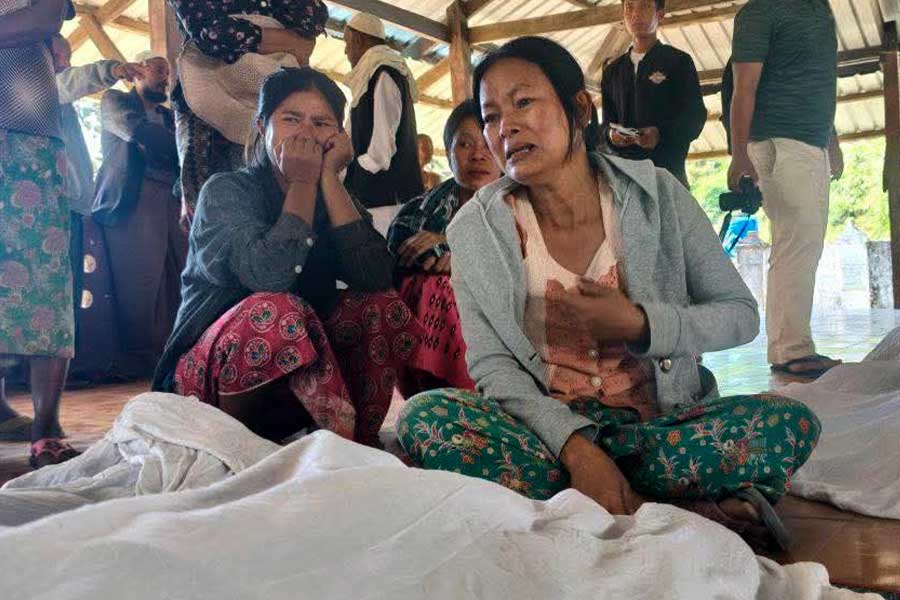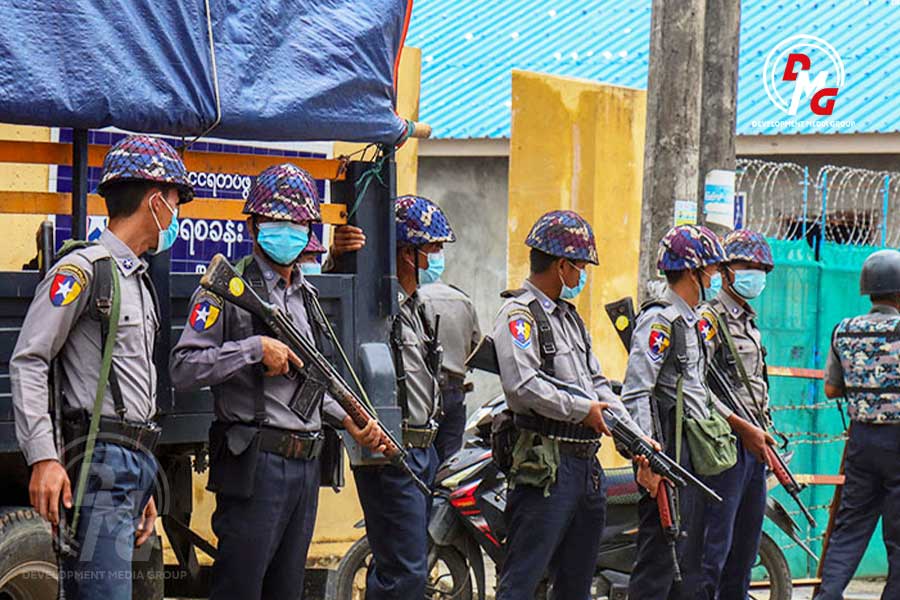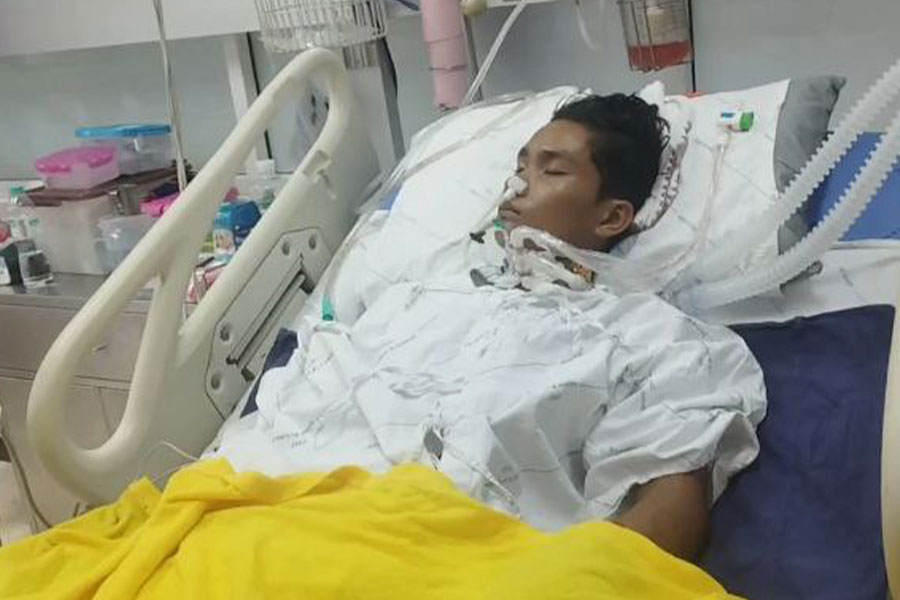- Nearly 70 civilians and POW family members killed or injured by junta attacks in Arakan State in one month
- Junta accused of extorting money from detained Muslims in Sittwe
- Weekly Highlights from Arakan State (Jan 26 to Feb 1, 2026)
- Arakanese youth stabbed in Mae Sot urgently needs financial aid for medical treatment
- Five years on Myanmar faces uncertain military and political outlook after coup
Displaced distance learners struggle to afford continuing education
Distance learners taking shelter at displacement camps in Arakan State are facing financial difficulties to continue their education due to high food prices and school fees.
11 Sep 2023

DMG Newsroom
11 September 2023, Sittwe
Distance learners taking shelter at displacement camps in Arakan State are facing financial difficulties to continue their education due to high food prices and school fees.
“I may not be able to attend university this year,” said second-year student Ma Khin Myat Wai from Shwe Parami displacement camp in Rathedaung Township, who specialises in oriental studies. “My parents are struggling and prices are also soaring. So, I have financial difficulties.”
Last year, per-month costs amounted to about 50,000 kyats for accommodation, 70,000 kyats for meals and 120,000 kyats for tuition. Costs have increased this year to around 80,000 kyats for accommodation, 120,000 kyats for meals, and 200,000 kyats for tuition, according to distance learners.
The prices of consumer goods, basic foodstuffs and fuel are among those that have risen significantly this year, making it harder for students at displacement camps to continue their education.
“I can’t afford to pay college costs. [Authorities] have registered students at displacement camps, saying that stipends would be given to them. However, we have received nothing so far. I am not sure if I can go to university this year,” said a second-year Burmese literature student from Kavi Yadana displacement camp in Kyauktaw.
While displaced people are receiving less and less assistance from donors and aid agencies, jobs are scarce. Many have sold their belongings and do casual jobs to feed and provide an education for their children.
“I have one son who is a distance learner,” said U Oo Saw Thein from a displacement camp opened at the railways station in Kyauktaw. “I still don’t know where I can get money to send him to university. Every day, I work as a bricklayer or collect bamboo just to not starve. I have to go deep into the forest to forage vegetables.”
Distance learners specialising in science subjects are currently attending classes, and those specialising in the arts will attend classes soon.
Facing the rising costs of an advanced education, some university students have abandoned their studies, and have instead chosen to work overseas.
“My parents have no jobs and I have been forced to work for daily wages,” said second-year history student Ko Kyaw Lin Htay from Myadazaung displacement camp in Mrauk-U. “In this way, I save money for my schooling. My mum is planning to borrow money from others. I plan to work in Yangon next year. Otherwise, I can’t afford to go to university next year.”
Some 60,000 people remain in displacement camps in Arakan State and neighbouring Chin State’s Paletwa Township after being displaced by fighting between the Myanmar military and Arakan Army.















.jpg)

